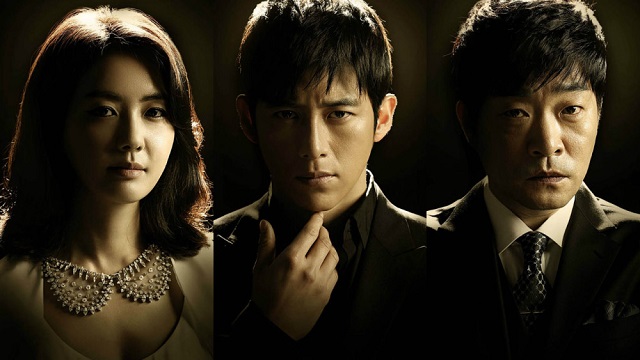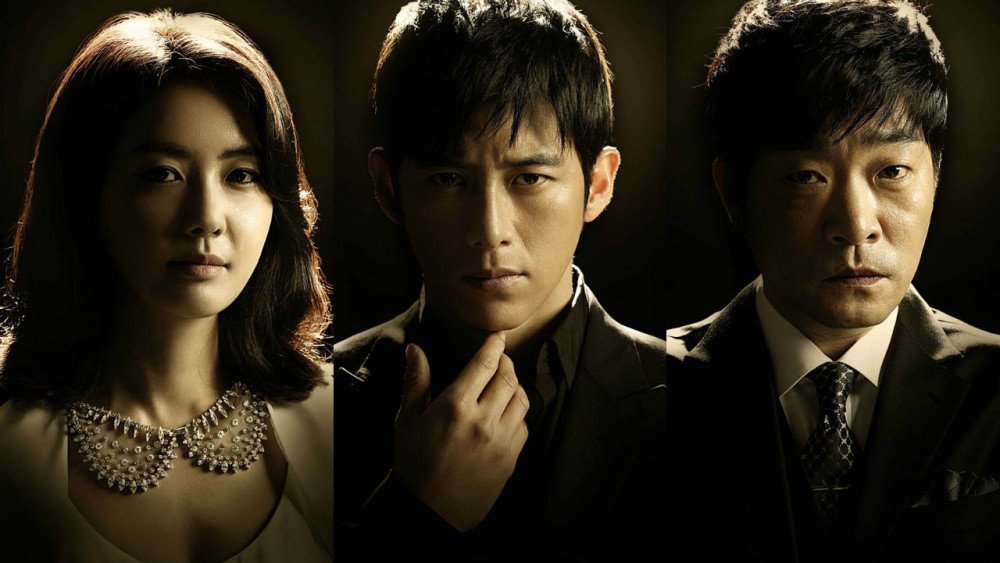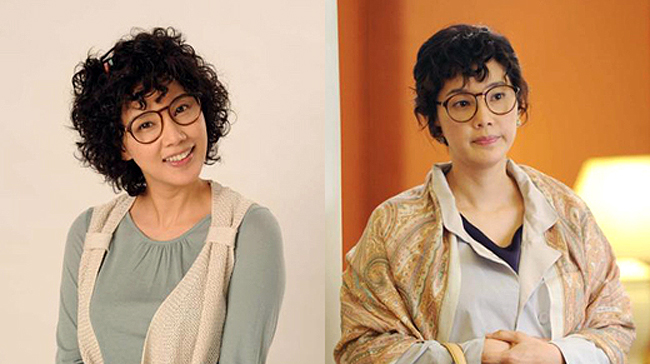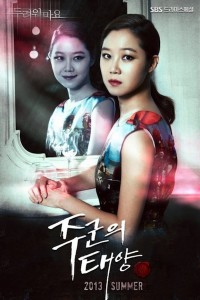 Korean dramas are notorious for capturing female characters in one of three categories: the hardworking candy girl looking for Prince Charming, the nefarious, revenge driven woman, and the insecure girl under the guise of being plucky and badass. These clichés are most certainly boring, but what’s worse (for both male and female characters) is that these stereotypical character constructs are limiting the scope of a character’s individuality and personality—by extension, the impact of the character. In the case of females, recycling and over-simplifying the heroine also dwindles down any sense of “female empowerment” and narrative relevance.
Korean dramas are notorious for capturing female characters in one of three categories: the hardworking candy girl looking for Prince Charming, the nefarious, revenge driven woman, and the insecure girl under the guise of being plucky and badass. These clichés are most certainly boring, but what’s worse (for both male and female characters) is that these stereotypical character constructs are limiting the scope of a character’s individuality and personality—by extension, the impact of the character. In the case of females, recycling and over-simplifying the heroine also dwindles down any sense of “female empowerment” and narrative relevance.
I use “female empowerment” very loosely, because while feminism is the goal, the requirement that females must be in well-defined boxes of “self-empowerment” is not. When female characters are written to be “strong,” it usually lends itself to stripping away any sense of nuance or complexity to the drama characters—they are completely good or completely evil, or if they are powerful, they must be malicious and/or sensual. No real person embodies a single trait completely and fully, nor is any female’s life a product of her male counterpart’s. Female characterization should not be a means for men to fetishize women, or a half-hearted attempt to make women tangibly “strong” but of no substance.
Sophia McDougall beautifully captures this problem in her article, “I hate Strong Female Characters”:
“Nowadays the princesses all know kung fu, and yet they’re still the same princesses. They’re still love interests, still the one girl in a team of five boys, and they’re all kind of the same. They march on screen, punch someone to show how they don’t take no shit, throw around a couple of one-liners or forcibly kiss someone because getting consent is for wimps, and then with ladylike discretion they back out of the narrative’s way.
On the posters they’re posed way in the back of the shot behind the men, in the trailers they may pout or smile or kick things, but they remain silent. Their strength lets them, briefly, dominate bystanders but never dominate the plot. It’s an anodyne, a sop, a Trojan Horse – it’s there to distract and confuse you, so you forget to ask for more.”
While K-dramas generally subscribe to a slightly different brand of useless females, there are moments where these heroines depart from shallow romantic partners to a powerful force within the narrative of the story. However, the caveat is that these marked changes occur almost exclusively in serials where said female character is the lead. While gender stereotypes continue to be utilized as part of the norm in the K-drama landscape, it would be blind of me to ignore some significant developments in female characterization. One of these spectacular dramas is the ever famous My Name is Kim Sam-soon (from here to be referred to as MNKSS).
(Spoilers are included below)
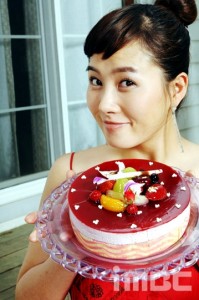 While MNKSS is a famous drama for scoring some of the highest ratings seen (50.5% for its finale) and acting as the source material for half-a-dozen K-drama cultural icons, MNKSS’s greatest achievement has to be Kim Sam-soon herself. At first glance, Sam-soon appears to frolic among the most mundane of rom-com heroines (fretting over being thirty and unmarried), but she is and grows to become much more than that. Sam-soon is insecure not for the petty things, like her “overweight” figure, but for the fear that she can’t live up to her own dreams—that she’ll forever be scared to live on her own terms.
While MNKSS is a famous drama for scoring some of the highest ratings seen (50.5% for its finale) and acting as the source material for half-a-dozen K-drama cultural icons, MNKSS’s greatest achievement has to be Kim Sam-soon herself. At first glance, Sam-soon appears to frolic among the most mundane of rom-com heroines (fretting over being thirty and unmarried), but she is and grows to become much more than that. Sam-soon is insecure not for the petty things, like her “overweight” figure, but for the fear that she can’t live up to her own dreams—that she’ll forever be scared to live on her own terms.
Her development through the sixteen episodes is to become a woman that lives her life for herself, loves like there’s no tomorrow, and copes with societal pressures with great maturity. In fact, the title of the drama, “My Name is Kim Sam-soon,” becomes even more powerful under this interpretation, for the drama boils down to Kim Sam-soon realizing what it means to be herself (and not in that cheesy way); to find out what being “Kim Sam-soon” implies or means. In the five years since the end of the drama, Jin-heon may not be with her or she may lose her bakery, yet the possibilities of further pitfalls in Sam-soon’s life is of little consequence for Sam-soon’s story. Sam-soon is not Cinderella, and her happy ending requires not a Prince Charming, castle, or fairy godmother, but resilience.
“Sometimes, the thought comes to me that we might one day break up, since that’s part of being in love. But I won’t be afraid of the future. I understand the things that I have to do now: do my best to make my cakes and do my best at love, just as if today is my last day, just as if I’ve never been hurt, and to love myself, Kim Sam Soon, more.”
Though Kim Sam-soon breathes life into the conceptualization of a well-rounded female lead, her journey of self-discovery is often overshadowed by her relationship with Jin-heon by nature of the storytelling. On the other hand, Choi Seo-yoon (Empire of Gold), is a nuanced character that defies even the classic set up that managed to bring Sam-soon depth: she’s not the main character (she is of the main trio), she doesn’t fit any of the above stereotypes, her power is not a product of the male lead, and she is often considered to be an enemy of said male lead.
While dramas explore powerful, positive, “strong” female heroines, such as in Sword and Flower, those female characters are rarely in positive contention with the male lead and they are even less likely to be in a genuine position of power above the male lead. Most scenarios of this “female over male” arrangement become similar to those in I Need Romance, or Queen of Reversals; that position of superiority turns out to be a lie, for underling turns out to be a chaebol.
Seo-yoon is not faced with such depreciating circumstances. She is the Vice-Chairman of Sung Jin Group and “the true heir” to the conglomerate, and the drama doesn’t question whether or not she’s capable at being at such a high position. She’s intelligent, well read, introspective, powerful, and I might as well simplify this and say that she’s perfect in every way—right? The truth is, she isn’t perfect. Not even close.
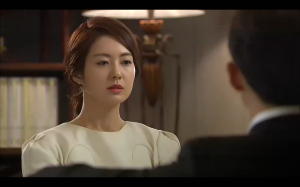 While Seo-yoon fits nearly all of those descriptors, she is not a “Mary-Sue.” She’s a person that happens to be gifted with intellect (she must be to run a company)—but she’s far more than that. She’s incredibly flawed in her life stance and in her perceptions of her father; she’s of decent morals but haughty in presence; she’s “loved” by the populace but lacking an understanding of people, and at times, she’s self-alienating and selfish as well. Watching her grow to become a person (not a legacy fulfilling machine), is not only the most important aspect of the show, but also a remarkable one, because she doesn’t sacrifice her female traits to be “among men” or find her sole strength in loving someone else. She doesn’t need a man to save her, or take care of her, and if she falls in love, it’s on her own terms. She’s the first woman I’ve witnessed in a contract marriage who has an equally important agenda to fulfill with the male character—and she’s also the first to suggest that very contract marriage to a bewildered male lead.
While Seo-yoon fits nearly all of those descriptors, she is not a “Mary-Sue.” She’s a person that happens to be gifted with intellect (she must be to run a company)—but she’s far more than that. She’s incredibly flawed in her life stance and in her perceptions of her father; she’s of decent morals but haughty in presence; she’s “loved” by the populace but lacking an understanding of people, and at times, she’s self-alienating and selfish as well. Watching her grow to become a person (not a legacy fulfilling machine), is not only the most important aspect of the show, but also a remarkable one, because she doesn’t sacrifice her female traits to be “among men” or find her sole strength in loving someone else. She doesn’t need a man to save her, or take care of her, and if she falls in love, it’s on her own terms. She’s the first woman I’ve witnessed in a contract marriage who has an equally important agenda to fulfill with the male character—and she’s also the first to suggest that very contract marriage to a bewildered male lead.
Don’t worry, I’m not suggesting to eschew romance altogether, but what Empire of Gold has done is give life to the heroine beyond that inevitable romantic development, or at least, what the synopsis claims to be inevitable. Love is not the driving force for her growth and interaction: Seo-yoon isn’t there to fall in love with Tae-joo (the male lead), and his contributions (and influences) that lead to her character progression aren’t a (direct) product of love either. Moreover, Seo-yoon equally influences Tae-joo as someone in a position he more or less aspires to become. In essence, the male and the female leads participate in an equal give and take, but in context of their common humanity, business partnership, and plausible friendship, not their opposing genders or romantic interest.
Furthermore, what makes Seo-yoon’s existence as a compelling female lead even more awe-inspiring is that Empire of Gold is written from a male’s pen. Male writers are usually the culprit of fashioning female pawns in their storytelling styles, so seeing Park Kyung-soo bring to life a heroine that is interesting and dynamic because of who she is, not that she is “a she,” is wonderfully refreshing.
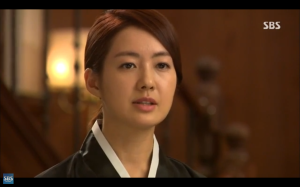 Therefore, what objectively (and ultimately) makes Choi Seo-yoon succeed as a character has less to do with her personality as it is how Park Kyung-soo tackles the three core elements of realism and relevance in characterization as described by Hasanali, “Prominence, Internal Perspective, and Dynamism,” with praise-worthy finesse:
Therefore, what objectively (and ultimately) makes Choi Seo-yoon succeed as a character has less to do with her personality as it is how Park Kyung-soo tackles the three core elements of realism and relevance in characterization as described by Hasanali, “Prominence, Internal Perspective, and Dynamism,” with praise-worthy finesse:
She is prominent by nature of her role as a competitor in the battle for the Empire of Gold, and she continuously displays internal perspective, whether through her conversations with (her brother) Sung-jae, or while mulling over Sung Jin’s management in her office. It would have been very easy for the writer to use Tae-joo, or even Sung-jae, as the sole means of understanding Seo-yoon, but she may actually have the most screen time interacting with other characters and grappling with her own issues, becoming a character that we as viewers want to support and love because of who she is.
As for the dynamism, I believe the last few paragraphs reveal a lot about how she’s changed over the two-decade span of the show. Hitting these three traits square on the head has allowed Choi Seo-yoon the potential to become the powerful character that she has, in essence, truly become—even if she didn’t start out as the titular character. Tae-joo may be the lens by which we see comprehends the drama’s world of corporate empires and the “wild card,” but it’s Seo-yoon that we watch grapple with the consequences of being part of such a world. She’s the one who holds all the stories together, the one person who has a stake in the lives of all involved with Empire of Gold.
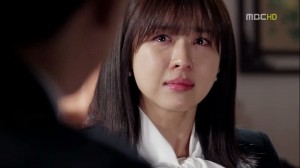 We need to see more Choi Seo-yoons and Kim Sam-soons in all forms of media, women who are characters, not female caricatures: people that are developed, nuanced, and relatable (note that I did not mention “bad-ass” or “strong”). While I’d hardly call either of them perfect or immune to some of the pitfalls of characterization, I find having such characters a sign of hope; hope that maybe one day I won’t have to pick out just two drama heroines to exemplify and analyze for being female and well written.
We need to see more Choi Seo-yoons and Kim Sam-soons in all forms of media, women who are characters, not female caricatures: people that are developed, nuanced, and relatable (note that I did not mention “bad-ass” or “strong”). While I’d hardly call either of them perfect or immune to some of the pitfalls of characterization, I find having such characters a sign of hope; hope that maybe one day I won’t have to pick out just two drama heroines to exemplify and analyze for being female and well written.
While there are most certainly more exemplary characterizations of women in drama that I did not mention, the vast majority of females in dramas are not of that nature. This has to change, not only for the sake of feminism and humanity, but for fact that it has been shown to be possible. Kim Sam-soon and Choi Seo-yoon have shown it is possible to make females more than puppets in storytelling, and that worthy female characters are of all types: timid, strong, self-assured, haughty, cruel, sweet, and kind. Now it’s up to the writers to take those most needed steps to change “Strong Female Characters” to “Strong Characters, Female.”
(SBS, MBC, Dramabeans, Newstatesman)
